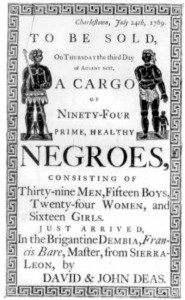Historical marker on Wall Street to acknowledge the slave trade
4th May 2015 · 0 Comments
(Special from NorthStarNews Today) — New York City officials will same day loans in california install a marker on Wall Street, finally acknowledging the city’s role in the slave trade.
The marker will be unveiled Juneteenth (June 19th), which was the day in 1865 when Major General Gordon Granger arrived in Galveston, Texas, and told the enslaved Africans that the Civil War had ended and they were free.
New York City will erect a marker, acknowledging that slaves were sold on Wall Street.
June 19th, 2015, will cash advance temecula be the 150th anniversary of Granger’s announcement, according to the website Juneteenth.com.
 The marker will be installed in a pocket park on the northeast corner of Wall and Water streets, one block from the intersection of Wall and Pearl streets, where the slave market operated in the from 1711 to 1762.
The marker will be installed in a pocket park on the northeast corner of Wall and Water streets, one block from the intersection of Wall and Pearl streets, where the slave market operated in the from 1711 to 1762.
“The slaves of that time and place helped build City Hall,” said New York City Councilman Jumaane Williams, a sponsor of the need emergency loan bad credit legislation that led to the marker’s creation. “Their lives should be celebrated and their deaths should be mourned.” The marker will cost about $5,000.
Slavery was introduced to Manhattan in 1626.
Although most of us associate slavery with the South, as it should be, the major slave-trading city was Providence, Rhode Island. The Episcopal Diocese of Rhode Island is planning to re-open a church where enslaved Africans once worshipped as a museum cash advance orangevale to study Episcopalians’ role in the trans-Atlantic slave trade.
“The Cathedral of St. John is blocks from where the slave ships came in [to port] and where slaves were sold. This church saw it all happen,” Canon Linda Grenz of the Diocese of Rhode Island, told Blackmansstreet.Today and NorthStar News Today.com.
Rhode Island, whose official name is the State of Rhode Island Providence Plantations, was at one time the epicenter of U.S. slave payday loan in darlington trade, associated with more than 1,000 slave voyages, or about 58 percent of the U.S. total, departing from Providence, Bristol, Newport and other seafaring towns located along the state’s coastline, according to an article by James DeWolf Perry.
The DeWolf family, led by James DeWolf, brought more than 10,000 enslaved Africans across the Middle Passage. DeWolf, a member of the Democratic-Republican Party, served in the U.S. Senate from 1821 to 1825. He was also the top cash advance Phoenix Arizona second-richest man in the country, according to the article.
“A lot of people believe that everyone in the North were abolitionists, but that’s not true,” Benjamin Sibielski, spokesperson for the diocese, said.
New York’s slave market operated for 51 years and thousands of Black men, women, children and captured Native Americans were sold into slavery.
This article originally published in the May 4, 2015 print edition of The Louisiana Weekly newspaper.



